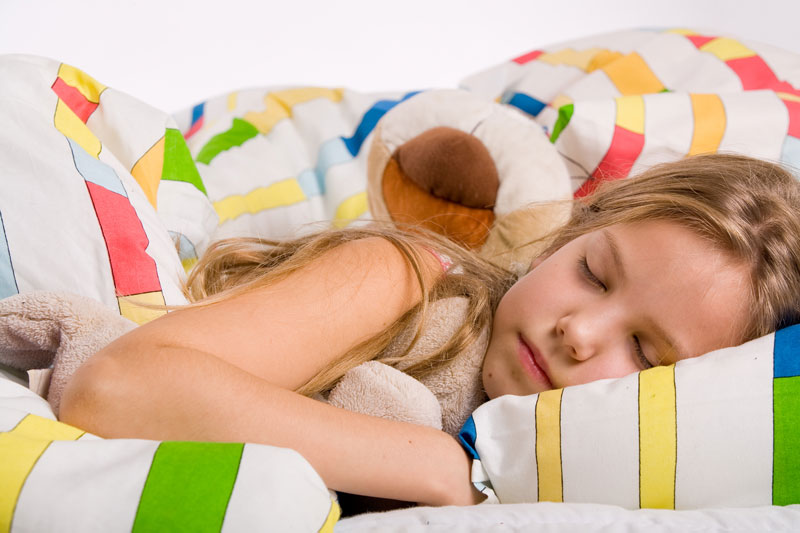Child sleep and bedtime challenges can manifest in a number of different ways. Children’s sleep patterns and preferences come in as many shapes and forms as children physically come in. Sometimes sleep difficulties can surface as a mismatch between the child’s own unique sleep system, and what the parents would ideally like their child’s sleep to look like. Sometimes children can fall into some unhelpful sleep habits following a significant change, during a particular developmental phase, during times of stress and anxiety, or simply following changes to their sleeping patterns after returning from a holiday. Whilst many sleep difficulties can resolve as development or life changes shift, at other times sleep difficulties can persist and create distress for the child or parent, or both!
Families may consult with a psychologist regarding child sleep challenges such as:
- Difficulties with settling and sleep on-set (falling to sleep) *please note we do not treat infant sleep, or do infant sleep training
- Difficulties with staying asleep and night-time waking
- Difficulties with your child waking early
- Delay tactics and resistance to getting into bed
- Difficulties staying in bed after lights out
- Separation anxiety at night, and co-sleeping
- Night time worries and fears
- Difficult behaviours at night, including tantrums, melt downs, and refusing to go to bed
- Not getting enough sleep – for children and parents!
- Developing more effective sleep hygiene practices to increase quality and quantity of sleep
- Nightmares and night terrors
Child sleep challenges are most effectively treated when the underlying reasons for the problem are identified and addressed.
Common questions asked by parents when it comes to helping their child or adolescent settle down for a good nights sleep include:
 What kind of bedtime routine might suit my child?
What kind of bedtime routine might suit my child?- How do I deal with my child getting out of bed at night?
- How can I teach my child to self-settle?
- How do I determine how much sleep my child needs?
- How can we overcome my child’s negative attitude to sleep and bedtime?
- How can I stop my child from worrying about everything at night?
- How can we increase my child’s confidence in sleeping the night away from me?
- My child is not tired when it is bedtime, but I know he needs his sleep. How can I help him wind down more at night before bed?
- How can electronics impact my teen’s brain and sleep?
- What boundaries should I put around electronics at bedtime?
- Help – my teen wont get out of bed in the morning!
Shannyn may utilise psychoeducation and individualised sleep plans to teach parents, children and adolescents about their brains, bodies, and sleep, as well as helping children and adolescents to develop strategies that work best for them in overcoming their sleep challenges.
If you would like to know more about booking an appointment with Shannyn, contact the clinic directly on 0422 868 056.
3 Reasons Why Your Child’s Bedtime Sleep Routine May Not Be Working
Getting back into the swing of the school routine after the holidays often means that families become busy again. Children are busy at kinder or school, one or both parents may be working, some children may attend after-school care, or have extracurricular activities, and some may have homework to complete, so it’s no surprise that this early into the year your child may be looking a bit tired and exhausted. And that you may be wishing for some solutions to the sleep bedtime routine!

Children require between 8-12 hours sleep per night, depending on their age and individual needs, so it is vital that children are given a good opportunity to get some quality shut eye. Sleep quality and quantity has been directly associated with a child’s ability to maintain focus and attention, learn and retain information, manage their emotions and behaviours and have resilience to deal with everyday hiccups and challenges.
A child’s level of alertness is linked to their central nervous system, and this dictates how awake or asleep your child’s body is. Imagine that your child’s nervous system looks a bit like a coiled spring. The more demanding, stimulating, and fast-paced their schedules are, the more tightly coiled you’ll find their little nervous systems. Genetics, personality, and temperament also play a role in how wound up their nervous system may be at the end of the day.
In order to fall into a nice restorative sleep, their nervous system (their internal spring) needs to uncoil considerably. This uncoiling takes time, especially if we need to uncoil from being hyper awake (very awake, excited and stimulated), down into the sleep state. You might even imagine this as a thermometer reading of +10 needing to trickle down into a – 10. The more relaxed and calm your child is before closing their eyes to sleep, the more likely they are to fall asleep within the average time of 10-15 minutes.
Therefore, a healthy bedtime routine really should be focusing on the best ways your child can wind down and relax in the last 1-2 hours in their evening – before they hop into bed.
A typical bedtime routine might sound something like this:
- watch a tv show, or some quite family activities,
- brush teeth and go to the toilet
- read a story or two (or some quiet reading for older children)
- goodnight and lights out/night light on.
However, if you are finding that your child is not tired at bedtime, or seems to resist or fight bedtimes, then consider some of these helpful tips:
4 things that increase alertness at bedtime (tighten the spring):
- Stress, anxiety, arguments, high emotions (such as anger, sadness, worry) in your child or in family members around them
- Excess movement and high-energy activities before bed. If your child needs to expend energy, ensure they are doing this earlier in the night or at least an hour before bed
- Reading a “school reader” as a bedtime story, or doing any homework in the last 30mins-60 mins before bedtime
4 things that reduce alertness at bedtime (relax the spring)
- Dimming the lights. Our brains release a sleep-inducing chemical called melatonin when it gets dark at night, so dim your lights in the evenings to help this natural sleep-aid kick in
- Having a story or reading in bed for 15 minutes, and then turning the lights out without having to get up out of bed again
- Listening to relaxing music before bed can help slow down the mind and bodies of busy children
- Doing some mindfulness meditation before sleep. There are plenty of child-friendly breathing and relaxation apps available nowadays. There is a wide variety of sleep stories, sleep meditations and relaxing music for kids on apps such as Spotify.
Mistake # 1 – Reading a brief 5-minute story before bed.
If your child is finding if difficult to calm down and fall to sleep at night, spending 15 minutes doing stories is a valuable tool to help slow down and relax alert bodies. Think about how much more physically relaxed you feel are after sitting on the couch for 15 minutes doing nothing, rather than just 5 minutes.
Mistake # 2 – You do stories on the couch rather than in their own bed.
It makes little sense to read a nice calming story to your child, and then ask them to wake their bodies up to walk to their bed, or to go to the toilet. Having the story as the last part of the bedtime routine increases its effectiveness in helping your child drift off into a nice sleep.
Mistake # 3 – Rushing the night time routine.
While it might feel like bedtimes drag on when you don’t do the hurry along, be mindful that the more rushed, pushed, or frustrated parents are at bedtime, the more likely this busy energy will contribute to a delay in the calming (uncoiling) of your child’s nervous system.
If delay tactics continue to be problematic at bedtimes, it may be useful to explore with your child any other underlying reasons why they are avoiding bedtimes.
If you found these tips useful and would like to find out more please speak to our reception team on 0422 868 056.
Written by: Shannyn Wilson – Psychologist at Shannyn Wilson Psychology
